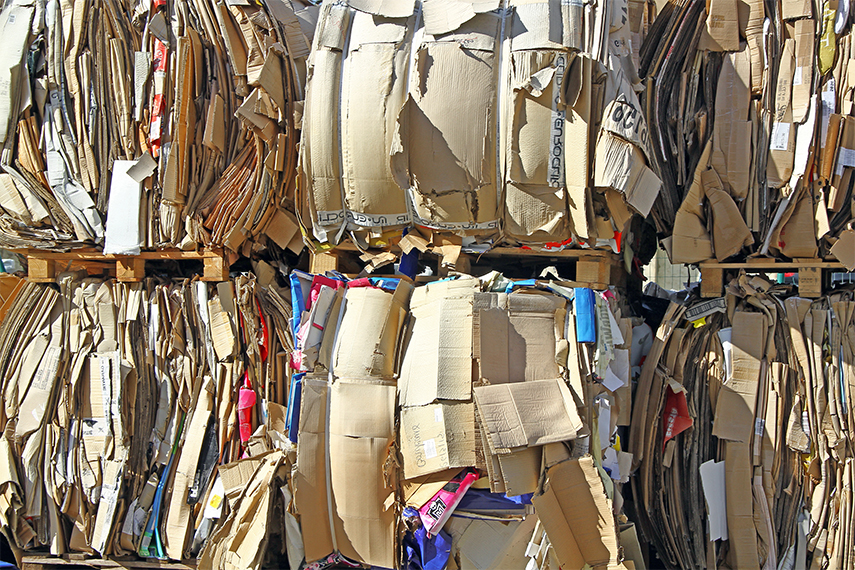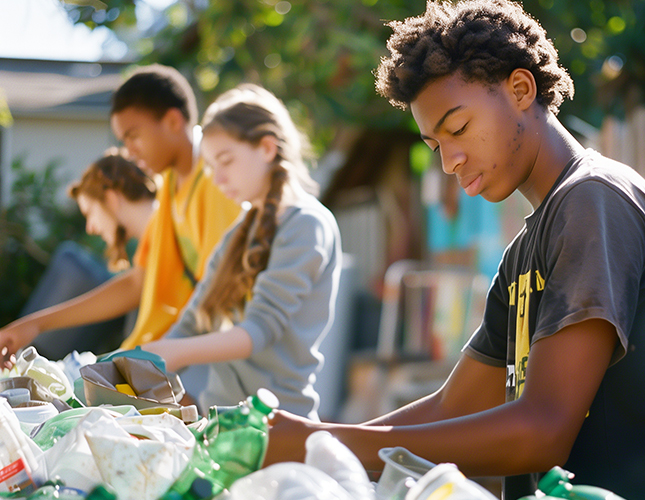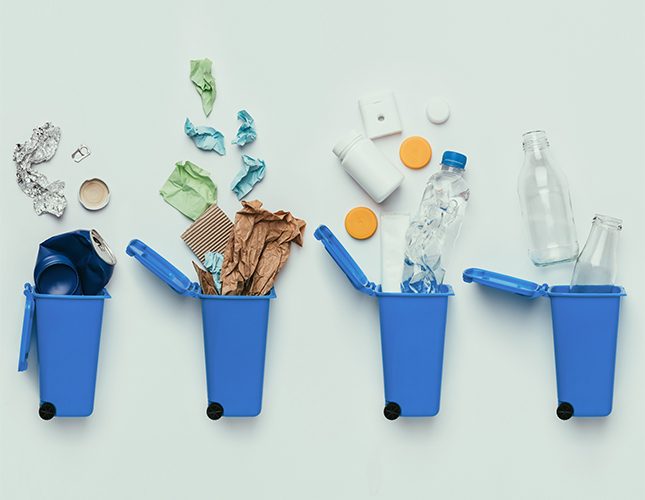It's just as important as ever to remember to use our recycling bin!
In the long lifespan of a product, every gesture counts. Recycling through recovery or reuse is undoubtedly the easiest way for citizens to take part in the process. However, it’s important to keep an eye on what goes in the recycling bin and what goes to the ecocenter or designated drop-off points.
Why recycle?
Because everyone has the power to give a second life to their residual materials by placing their items in the right places and Quebec’s recycling system has come a long way in recent years. The vast majority of everyday products (paper, cardboard, plastic, packaging, newsprint, glass, etc.) find their way into the recycling bin, which has now become an integral part of our lives. There’s nothing easier than taking your recycling bin to the curb at the same time as your household garbage or compost bin! However, items containing hazardous materials (such as lithium batteries, light bulbs, or even small household appliances) must be taken to ecocentres or designated drop-off points for safe recycling. You can consult the list of participating companies by downloading Recyc-Québec’s “Ça va où?” application, or by visiting the Call to Recycle website.
Input from sorting centers
Giving recyclable materials a second life
Did you know that the most recycled material in Quebec is paper? In fact, it’s the most valuable material at Ricova. Not only do recycled paper and cardboard avoid cutting down additional trees, they can also be easily transformed into toilet paper, hand paper, newsprint or cardboard boxes. There is a strong demand for these easy-to-convert products.

As for metals like aluminum, which can be recycled ad infinitum, it’s even more important to put products containing it in your recycling bin to continue its life cycle. What’s made of aluminum? The famous tin cans found in grocery stores, as well as soft-drink cans. Our cell phones, tablets and computers contain aluminum, but must be recycled at an ecocenter or designated drop-off points. Aluminum is also used extensively in the automotive, construction and energy industries.
Plastic is also recyclable and can be used to manufacture other plastic containers of varying quality. Ricova markets a number of sustainable and eco-responsible plastic containers, from your peanut butter jars to chocolate cookie wrappers.
And what about glass? Most beverage containers are returnable, but if they aren’t, glass should be put in the recycling bin. Over the past few years, glass has become increasingly interesting and attractive to recycle, for example, by being used in concrete or as a water filter. Beware of broken glass, like porcelain and ceramics; they do not go in the recycling bin.
A reminder of the importance of recycling... even today!
Although nearly 97% of Quebecers claim to recycle at home, according to a Recyc-Québec survey, there’s still a long way to go when it comes to recycling at work or in companies themselves. Sometimes for lack of space or logistical reasons, the recycling bin isn’t always where it should be. That’s where Ricova comes in, offering rental containers that can save a lot of hassle. Let them take care of recycling your recyclables while you change the world, one step at a time.








